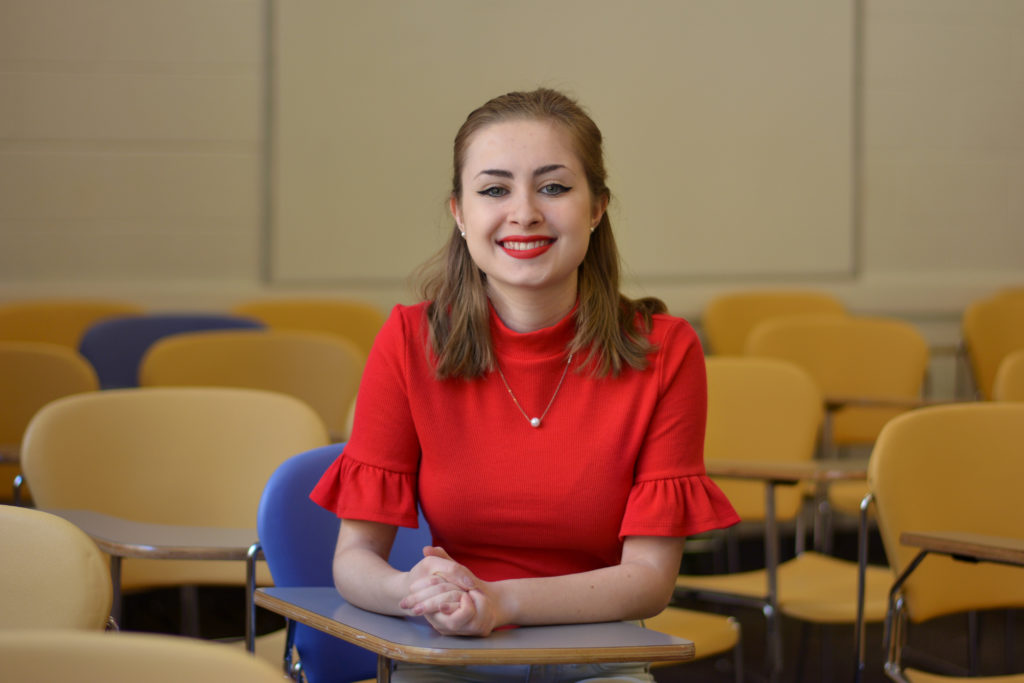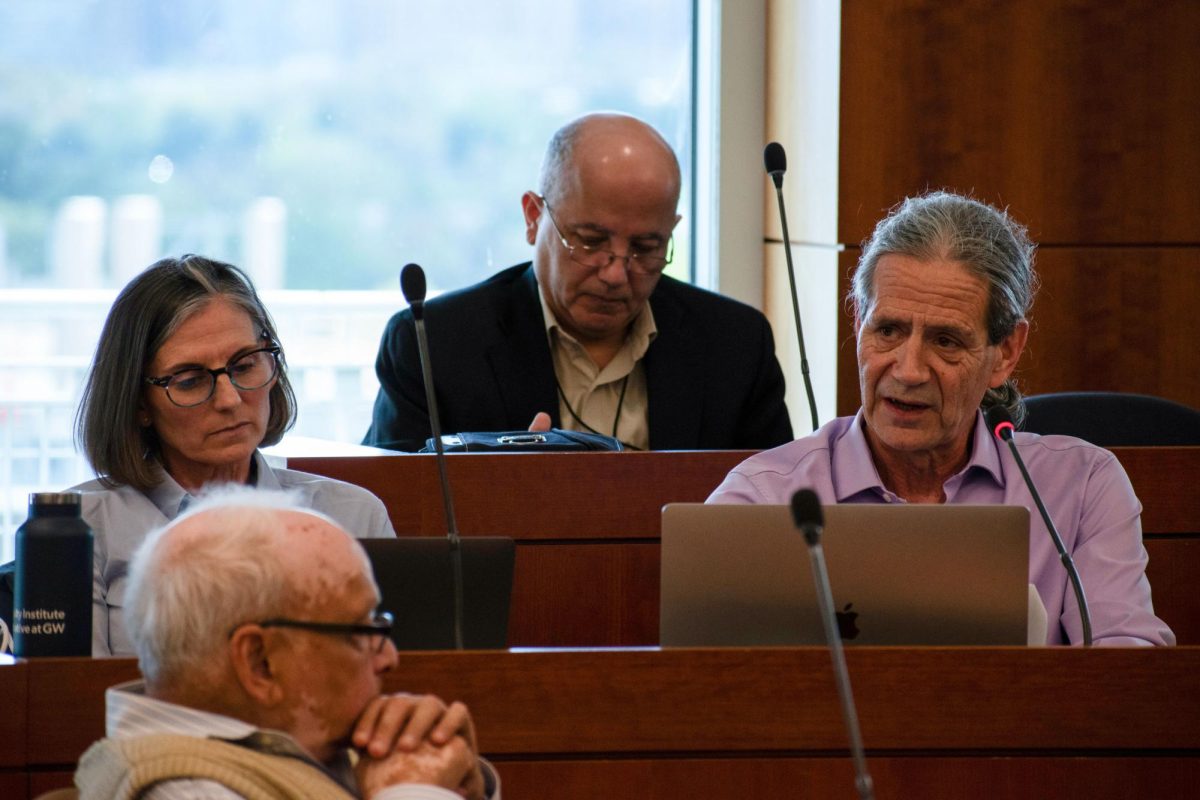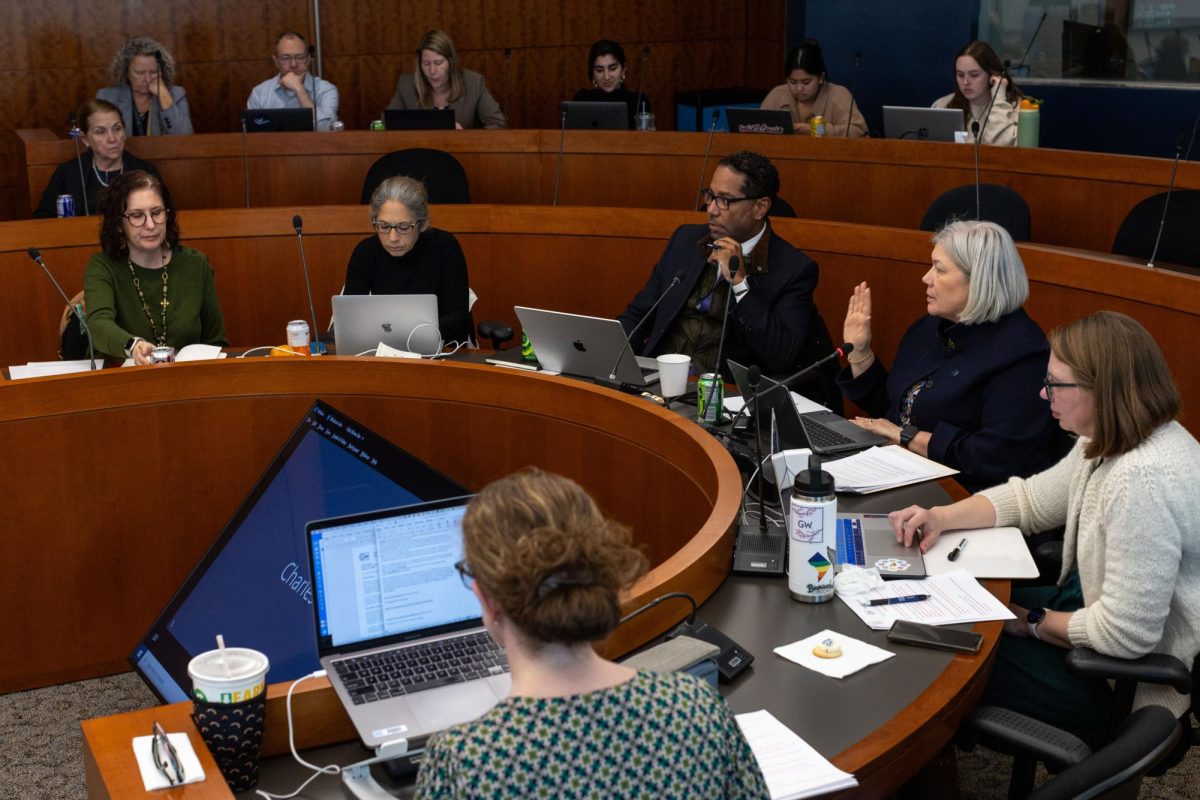The Faculty Senate called on officials to expand accommodations for religious holidays at a meeting Friday, upping the number of holidays applicable for excused absences and the amount of time students have to inform professors of an upcoming absence for a holiday.
The resolution, pending approval from top officials, would allow students to inform their professors of an absence due to a religious holiday up to three weeks before the holiday rather than at the start of the semester. The change would also permit students to reschedule any finals during the final exam period that conflict with a religious holiday “to the greatest extent possible” and without interfering with the exam’s integrity.
Nicole Cennamo, the Student Association’s senior policy adviser who also serves on the senate’s educational policy and technology committee, said the resolution expands the list of religious holidays currently on the University’s religious holiday calendar to include 25 more holidays and more faiths. Compared to its 12 peer schools, she said GW recognizes the third lowest number of holidays and the fewest faiths.
“Essentially we’re proposing three main changes to make our religious accommodations policy a little more inclusive and also in line with our peer institutions,” Cennamo said.
Cennamo said SA leaders wanted to include the change to the University’s final exam policy in the resolution because Ramadan conflicts with the spring final examination period for the next two years, meaning that Muslim students will fast from sunrise to sunset during their final exams.
After the resolution passed, she said SA leaders will partner with the provost’s office to expand the descriptions of each religious holiday so professors are aware of the specific types of accommodations that they can expect students to request.
University President Thomas LeBlanc also discussed GW’s operational and financial planning as the fall semester comes to an end, including recent changes to the spring academic calendar and the additional 1,100 students who were approved to live on campus next semester.
LeBlanc said he met with Mayor Muriel Bowser to provide her with an overview of GW’s plans to manage the pandemic for the spring semester, including GW’s plans for COVID-19 testing and contact tracing. He said Bowser was “appreciative” of the effort from School of Medicine and Health Sciences officials to provide 1,200 flu vaccines for medically underserved areas of the District.
“Thanks to the extensive planning efforts by our faculty and staff, Mayor Bowser and her team had no concerns about our reopening plans for the spring, the additional students, the intent to stay virtual,” LeBlanc said.
He said as COVID-19 cases rise across the District, officials at GW’s testing facilities have noted an increase in positive cases from the roughly 3,000 students living off campus. Administrators expanded GW’s in-house testing facilities in September to off-campus students who present COVID-19 symptoms or “are worried” they have had “possible COVID-19 contact.”
“While we’re seeing some positive cases in our on-campus student cohort, most of them are occurring within the off-campus student population,” LeBlanc said.
He said between on- and off-campus students, officials are conducting “close to 5,000 plus tests a week.” As additional students come to campus this spring, he said officials expect to conduct about 7,500 tests per week.
He added that officials set up a basketball season schedule that minimizes air travel, saying if anyone on the team tests positive for the virus, the whole competition will be canceled.
Senators also discussed the upcoming Faculty Assembly meeting, which was postponed this year to give senate staff more time to determine how to hold the meeting virtually and ensure that any votes taken during the meeting are fair. Senators discussed how the Faculty Organization Plan, which outlines the rules and expectations for the assembly, does not specify whether faculty can engage in a virtual vote.
Senate parliamentarian Steve Charnovitz said faculty can vote by unanimous consent at the start of the meeting to allow the assembly to vote virtually, which he said historically has not been allowed. But Shaista Khilji, a faculty senator and professor of human and organizational learning, argued that with more than 600 participants registered for the assembly as of Friday, any dissenting individual could stop the assembly from voting at all.
Sarah Wagner, a faculty senator and associate professor of anthropology, said after asking students and faculty to teach and learn virtually this semester, it’s “sort of mind blowing” that faculty might not be able to vote virtually at the assembly meeting.
“We have a faculty assembly, we’ve had time to plan for it, it sounds as if we’ve got the technology in play,” she said. “We are all doing things exceptionally, many of us are teaching remotely, these are exigent circumstances – how is it not possible, either for this body, the executive committee, the parliamentarian or the president, the provost, for one of us or all of us to simply make the decision so that our colleagues who will gather for an assembly are able to have their voices heard?”
Harald Griesshammer, a faculty senator and associate professor of physics, said the meeting cannot be considered an assembly if faculty don’t have the opportunity to vote.
“This is a matter of principle – if we have an assembly as a democratic body, that assembly needs to have the opportunity to have a majority opinion about anything, as small as approving the minutes,” he said. “If that’s not the case, if it cannot actually voice its own opinion by majority decision in anything.”
Arthur Wilson, the chair of the executive committee, also presented a summary of findings from the committee’s survey of faculty members who were involved in discussions for Provost Brian Blake’s major planning initiatives.
Jay Goff, the vice provost of enrollment and student success, also gave an update on the fall census and enrollment, saying the number of applicants for next fall is “consistent” with national trends, and officials are developing new strategies to increase recruitment.
“New first-years and transfers should be right on track to hit the models in place,” Goff said.








